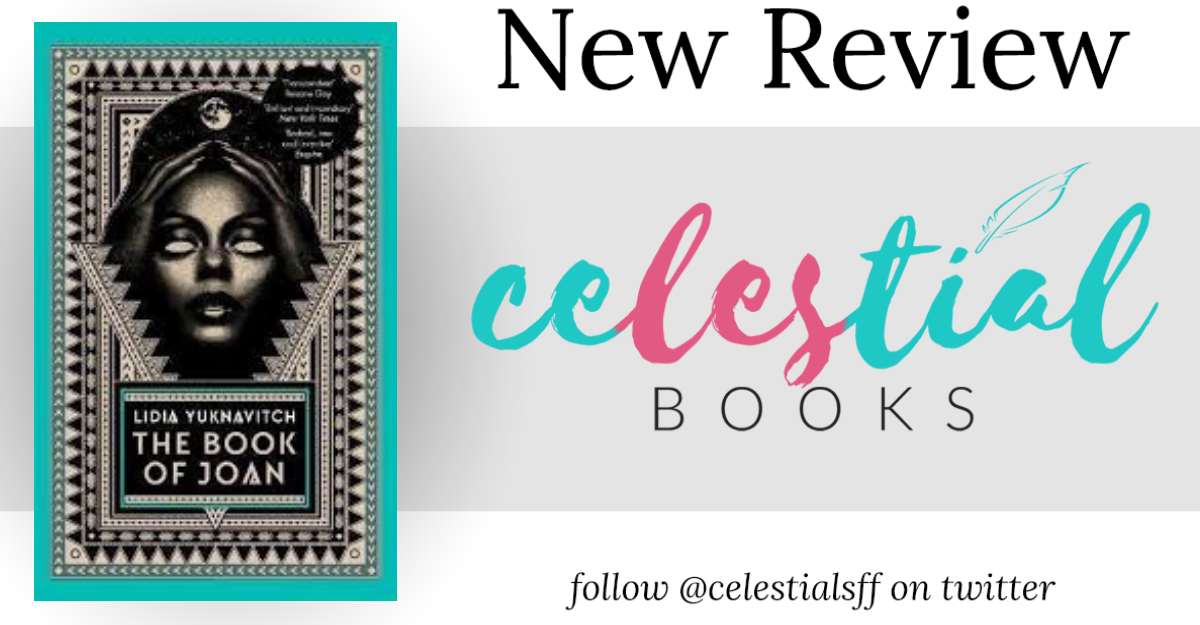BLURB:
In the near future, world wars have transformed the earth into a battleground. Fleeing the unending violence and the planet’s now-radioactive surface, humans have regrouped to a mysterious platform known as CIEL, hovering over their erstwhile home. The changed world has turned evolution on its head: the surviving humans have become sexless, hairless pale-white creatures floating in isolation, inscribing stories upon their skin.
Out of the ranks of the endless wars rises Jean de Men, a charismatic and bloodthirsty cult leader who turns CIEL into a quasi-corporate police state. A group of rebels unite to dismantle his iron rule—galvanized by the heroic song of Joan, a child-warrior who possesses a mysterious force that lives within her and communes with the earth. When de Men and his armies turn Joan into a martyr, the consequences are astonishing. And no one—not the rebels, Jean de Men, or even Joan herself—can foresee the way her story and unique gift will forge the destiny of an entire world for generations.
A riveting tale of destruction and love found in direst of places—even at the extreme end of post-human experience—Lidia Yuknavitch’s The Book of Joan raises questions about what it means to be human, the fluidity of sex and gender, and the role of art as means for survival.
REVIEW:
This review was originally published by Aurealis Magazine. Review by Rebecca Langham.
The Book of Joan is a post-apocalyptic sci-fi that catapults Joan of Arc and Christine de Pizan, a prominent medieval author, into the future. The maid becomes Joan of Dirt, an enigmatic child who comes to understand as the story progresses that she is something beyond crude muscle and human consciousness.
Christine is a translucent, hairless woman who, like almost everyone else, has lost her genitalia. She is part of a group that live on CIEL, a space platform that protects from the irradiated dirt Joan is intrinsically connected to. Christine is a writer like her fourteenth century counterpart, except that stories in her world are burned into grafts of flesh attached to bodies like grotesque accessories. Most flesh-stories reflect an obsession with gratuitous sex. There is ongoing battle between the misogynistic pornography written by antagonist Jean de Men and Christine’s stories that challenge the androcentric zeitgeist.
Yuknavitch demonstrates a distinct flair for language. Beautiful prose reflects upon philosophical themes. What is the place of humanity in the galaxy? What purpose does life have when it can no longer cultivate more life? What role do narratives play in the creation and maintenance of identity—collective and individual? Fascinating questions, and Yuknavitch’s impressive imagination soars as she engages readers in an unusual journey to find answers.
The plot, its characters and settings are unique, with the potential to both captivate and repulse readers. The novel delivers on promises of feminist, environmentalist and transhumanist themes, but in a violent manner that is tough to swallow. Women are victims of confronting and horrific mutilation.
The story also hints at the notion that women ultimately have responsibility for the perpetuation and moral-policing of life and must fulfil that responsibility no matter the cost. As such, despite its undeniable intelligence and unbridled originality, The Book of Joan is not for everyone.


 RSS Feed
RSS Feed

